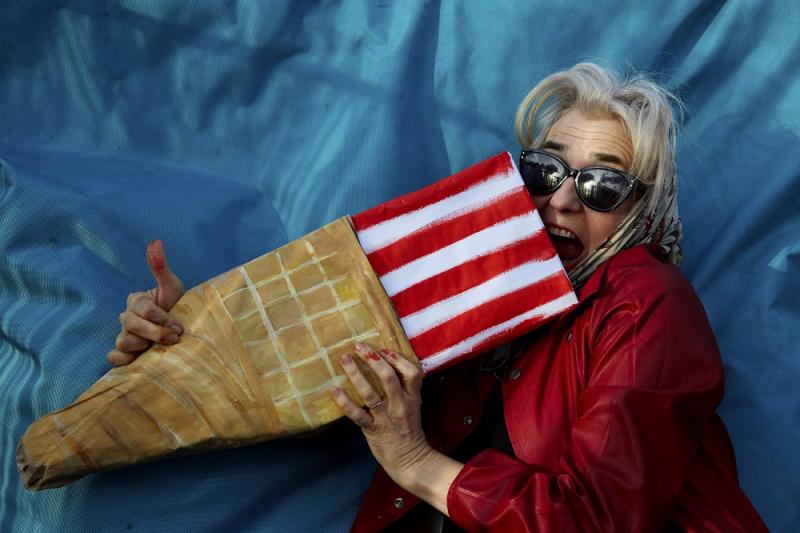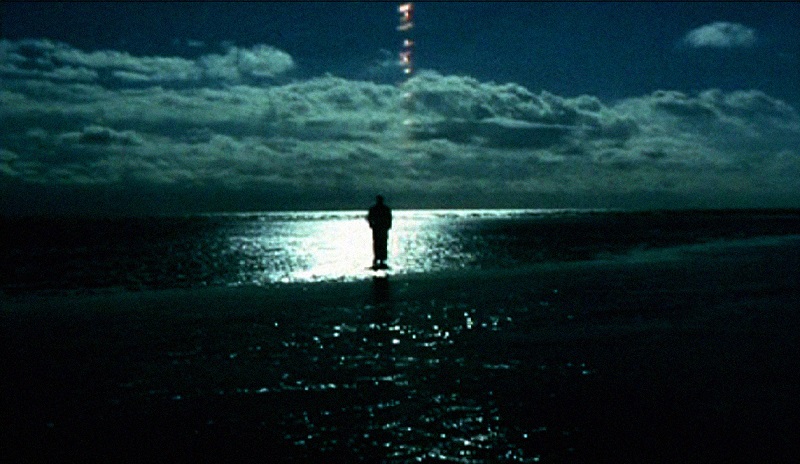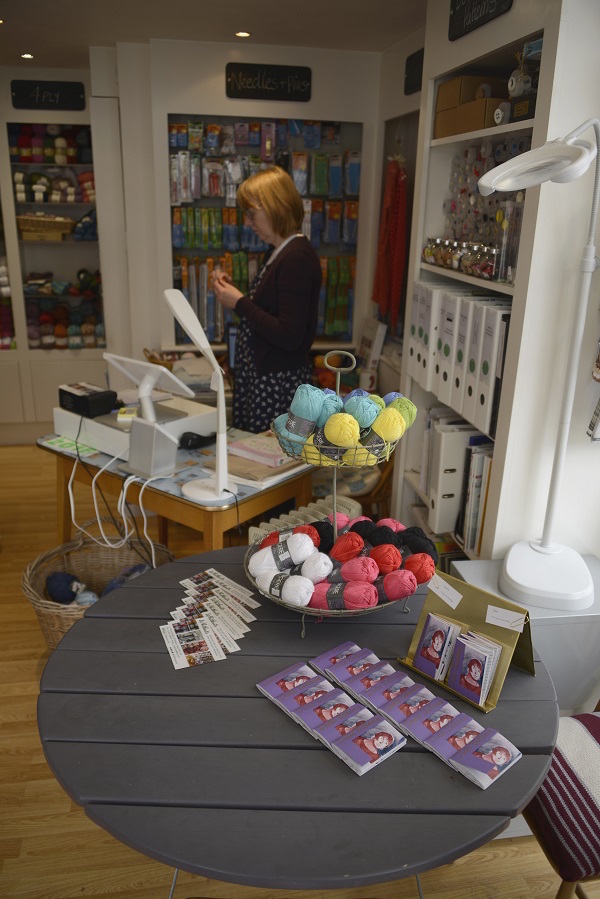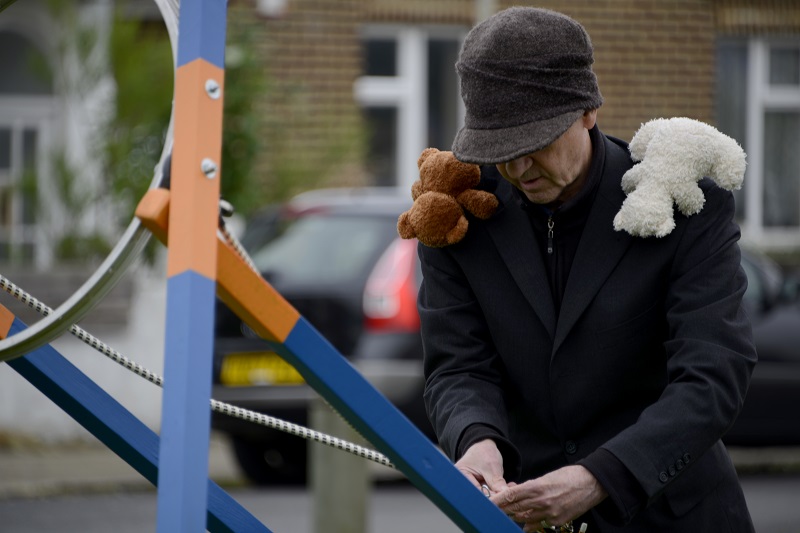Whitstable Biennale 2016 | reviews, news & interviews
Whitstable Biennale 2016
Whitstable Biennale 2016
Kent's festival of art has grown up, but it hasn't lost its spark

As if to signal a coming of age, this year's Whitstable Biennale has a theme: The Faraway Nearby. And so for the first time artists have a guiding idea with which to post-rationalise their work. Until now, the 10-day festival of visual art has staked out broad territory with performance, film and emerging talent.
If one work hits the nail most squarely on the head, it is Sarah Wood’s 20-minute film essay Boat People (pictured below). This compares the Vietnamese exodus of the late 1970s with the refugees of today, taking their chances in the Med. What results is an exhaustive history of British seafaring and migration, suggesting that, thanks to our island status, we should look outward rather than inward. Wood’s film was staged in a cosily hospitable beach hut on the harbour.
 But while Boat People cast its net wide for found footage and well-researched fact, another film in this year’s biennale found inspiration much closer to home. The Isle of Grain is the industrialised tip of a peninsula in Medway, Kent. It has a small, falling population and a demographic which inspired artist Mikhail Karakis to work with half a dozen local teenagers to produce a contemporary art rap video. Remote UK villages are a world away from South Central LA or Staten Island and so the gangster mannerisms fail to convince. That is, however, largely the point of Karakis’s demonstration that in the digital age, for all the rustic beauty of Grain, the youthful imagination is an urban one.
But while Boat People cast its net wide for found footage and well-researched fact, another film in this year’s biennale found inspiration much closer to home. The Isle of Grain is the industrialised tip of a peninsula in Medway, Kent. It has a small, falling population and a demographic which inspired artist Mikhail Karakis to work with half a dozen local teenagers to produce a contemporary art rap video. Remote UK villages are a world away from South Central LA or Staten Island and so the gangster mannerisms fail to convince. That is, however, largely the point of Karakis’s demonstration that in the digital age, for all the rustic beauty of Grain, the youthful imagination is an urban one.
One might say that the digital age also produces creeped-out claustrophobia. In the town’s lecture theatre, Webb Ellis have borrowed YouTube footage of films designed to give you ASMR (an Autonomous Sensory Meridian Response). These clips feature intimate, softly spoken monologues, which will either make you tingle or run for the hills. And if these weren’t spooky enough, the film conjured the 3,000-mile journey of eels between the Sargasso Sea to the River Esk, plus the dystopian screen-filled parlours found in Ray Bradbury’s Farenheit 451. Installed along with two red velvet armchairs and a lone Siamese fighting fish in a tubular tank, the diverse elements of this work might make most sense if you’ve recently read Bradbury’s novel.
 Whitstable Museum houses a film with a much tighter range of subjects. Lossy Ecology by Louisa Martin is a looping, impressionistic black and white film with ambient sound design. Like the ASMR videos quoted by Webb Ellis, it calls forth a strong, irrational response. Martin has approximated the experience of autism with an atmospheric piece, as intriguing as it is disturbing. Without narrative or narrator, we are left to contemplate fuzzy snatches of traffic noise and a floral arrangement filmed in negative. It offers what one imagines to be real neurological insight into a frightening condition.
Whitstable Museum houses a film with a much tighter range of subjects. Lossy Ecology by Louisa Martin is a looping, impressionistic black and white film with ambient sound design. Like the ASMR videos quoted by Webb Ellis, it calls forth a strong, irrational response. Martin has approximated the experience of autism with an atmospheric piece, as intriguing as it is disturbing. Without narrative or narrator, we are left to contemplate fuzzy snatches of traffic noise and a floral arrangement filmed in negative. It offers what one imagines to be real neurological insight into a frightening condition.
Another disorientation piece, in another beach hut, is a sound piece by Trish Scott. Scott has been to a pair of psychics to ask for predictions about her forthcoming work. And while in actual fact this work turned out to be this 15-minute field recording on two channels, the two psychics fall over one another to offer readings that are as contradictory as they are ridiculous.
We are by now at some remove from “the faraway nearby”, but one traditional way of bridging distances is to write a letter. Artist and writer Alice Butler overcomes social separation by writing fan letters to personal heroes. These include fellow writers Kathy Acker and Cookie Mueller, plus a notorious Victorian kleptomaniac. The result is a set of four artist books which are available for perusal and, it is said, stealing, on the High Street, at Whitknits craft shop and Clarke’s florists (pictured above right).
Marcia Farquhar has meanwhile travelled back in time to bring a film installation, performance and a piece of relational art to Sundae Sundae ice cream parlour. Her installation is on a tablet the size of a saucy postcard and replays a seaside scenario, drawing on family history, in which one holidaymaker cleans ice cream from the crotch of another (main picture). Meanwhile the store itself is stocking a new root beer ice cream flavour, while Farquhar is on hand to relate her family history to the history of prohibition.
 Off-the-wall performance is never in short supply at the Whitstable Biennale, but in a town of just over 30,000, venues for art are scarce. My personal highlight from 2016 was a performance which manages to unearth the history of an unremarkable car park and transmute it into weird and wonderful gold (pictured above left). Richard Layzell’s performative lecture situates us in a former reservoir, not far from the destination of the first ever combustion engine, and within a story of the elements according to Empedocles. It culminates in a tirade against anthropomorphism and a chance to launch soft toys from a custom-made catapult.
Off-the-wall performance is never in short supply at the Whitstable Biennale, but in a town of just over 30,000, venues for art are scarce. My personal highlight from 2016 was a performance which manages to unearth the history of an unremarkable car park and transmute it into weird and wonderful gold (pictured above left). Richard Layzell’s performative lecture situates us in a former reservoir, not far from the destination of the first ever combustion engine, and within a story of the elements according to Empedocles. It culminates in a tirade against anthropomorphism and a chance to launch soft toys from a custom-made catapult.
Although Layzell has completed a beautiful excavation of an arbitrary tract of land, his piece is right at home in a biennale that maintains both an experimental approach and a refreshingly light touch. The grand new theme might be a sign that Whitstable has grown up, but it hasn’t lost its playfulness, and for that we should be thankful.
- Whitstable Biennale 2016 until Sunday 12 June
rating
Explore topics
Share this article
The future of Arts Journalism
You can stop theartsdesk.com closing!
We urgently need financing to survive. Our fundraising drive has thus far raised £49,000 but we need to reach £100,000 or we will be forced to close. Please contribute here: https://gofund.me/c3f6033d
And if you can forward this information to anyone who might assist, we’d be grateful.

Subscribe to theartsdesk.com
Thank you for continuing to read our work on theartsdesk.com. For unlimited access to every article in its entirety, including our archive of more than 15,000 pieces, we're asking for £5 per month or £40 per year. We feel it's a very good deal, and hope you do too.
To take a subscription now simply click here.
And if you're looking for that extra gift for a friend or family member, why not treat them to a theartsdesk.com gift subscription?
more Visual arts
 'We are bowled over!' Thank you for your messages of love and support
Much-appreciated words of commendation from readers and the cultural community
'We are bowled over!' Thank you for your messages of love and support
Much-appreciated words of commendation from readers and the cultural community
![SEX MONEY RACE RELIGION [2016] by Gilbert and George. Installation shot of Gilbert & George 21ST CENTURY PICTURES Hayward Gallery](https://theartsdesk.com/sites/default/files/styles/thumbnail/public/mastimages/Gilbert%20%26%20George_%2021ST%20CENTURY%20PICTURES.%20SEX%20MONEY%20RACE%20RELIGION%20%5B2016%5D.%20Photo_%20Mark%20Blower.%20Courtesy%20of%20the%20Gilbert%20%26%20George%20and%20the%20Hayward%20Gallery._0.jpg?itok=7tVsLyR-) Gilbert & George, 21st Century Pictures, Hayward Gallery review - brash, bright and not so beautiful
The couple's coloured photomontages shout louder than ever, causing sensory overload
Gilbert & George, 21st Century Pictures, Hayward Gallery review - brash, bright and not so beautiful
The couple's coloured photomontages shout louder than ever, causing sensory overload
 Lee Miller, Tate Britain review - an extraordinary career that remains an enigma
Fashion photographer, artist or war reporter; will the real Lee Miller please step forward?
Lee Miller, Tate Britain review - an extraordinary career that remains an enigma
Fashion photographer, artist or war reporter; will the real Lee Miller please step forward?
 Kerry James Marshall: The Histories, Royal Academy review - a triumphant celebration of blackness
Room after room of glorious paintings
Kerry James Marshall: The Histories, Royal Academy review - a triumphant celebration of blackness
Room after room of glorious paintings
 Folkestone Triennial 2025 - landscape, seascape, art lovers' escape
Locally rooted festival brings home many but not all global concerns
Folkestone Triennial 2025 - landscape, seascape, art lovers' escape
Locally rooted festival brings home many but not all global concerns
 Sir Brian Clarke (1953-2025) - a personal tribute
Remembering an artist with a gift for the transcendent
Sir Brian Clarke (1953-2025) - a personal tribute
Remembering an artist with a gift for the transcendent
 Emily Kam Kngwarray, Tate Modern review - glimpses of another world
Pictures that are an affirmation of belonging
Emily Kam Kngwarray, Tate Modern review - glimpses of another world
Pictures that are an affirmation of belonging
 Kiefer / Van Gogh, Royal Academy review - a pairing of opposites
Small scale intensity meets large scale melodrama
Kiefer / Van Gogh, Royal Academy review - a pairing of opposites
Small scale intensity meets large scale melodrama
 Jenny Saville: The Anatomy of Painting, National Portrait Gallery review - a protégé losing her way
A brilliant painter in search of a worthwhile subject
Jenny Saville: The Anatomy of Painting, National Portrait Gallery review - a protégé losing her way
A brilliant painter in search of a worthwhile subject
 Abstract Erotic, Courtauld Gallery review - sculpture that is sensuous, funny and subversive
Testing the boundaries of good taste, and winning
Abstract Erotic, Courtauld Gallery review - sculpture that is sensuous, funny and subversive
Testing the boundaries of good taste, and winning
 Edward Burra, Tate Britain review - watercolour made mainstream
Social satire with a nasty bite
Edward Burra, Tate Britain review - watercolour made mainstream
Social satire with a nasty bite
 Ithell Colquhoun, Tate Britain review - revelations of a weird and wonderful world
Emanations from the unconscious
Ithell Colquhoun, Tate Britain review - revelations of a weird and wonderful world
Emanations from the unconscious

Add comment